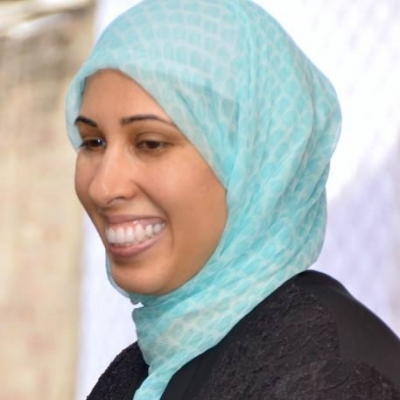



 Salina Khan
Salina KhanSister Salina Khan challenges the conventional, ritualistic approach to performing Hajj and explains her experiences during the last Hajj.
Is it sacrilegious that I had a run-in with our group scholar last year, and that too in Mina, the Valley of Love?
Our stay in Mina punctuated the end of a two-week pilgrimage trip that allowed us to bathe in Allah’s (swt) majestic power and glory in the sacred lands while bonding with fellow Muslims (3 million of them!) from around the world. We worshipped together, wept together and just enjoyed being together, all the while imploring the Merciful Lord’s forgiveness, guidance and ultimate pleasure,
“And proclaim among men the pilgrimage: they will come to you on foot and on every lean animal, coming from every remote path” (22:27).
Forced literally “shoulder-to-shoulder” throughout, the need for “personal space” was slowly replaced with feelings of love, compassion and sympathy for others — regardless of ethnicity, language and social class — feelings that ought to be important provisions in this journey called life.
For me, our equality before the Creator was most pronounced during the sai‘ or to-and-fro between the two mountains of al-Safa and al-Marwah. I got choked up every time the green light approached and all the male hajjis (no matter how rich, important or powerful back home), donned in two simple cloths, picked up their trot in emulation of Hajirah, the wife of Prophet Ibrahim (a) and great grandmother of Fatimah (one of the four perfect women of all times). Hajirah had done the same in search of water for her dying baby thousands of years ago.
This hustle was in obedience to the Almighty who continually reminds His guests of the elevated status of a black woman, gifted to Prophet Ibrahim (a) on his journey through Egypt, for acquiring what truly counts: taqwa (God consciousness) and absolute trust in her Lord. Follow her footsteps! Allah (swt) commands.
It was with such thoughts and feelings that hajjis land in the Valley of Mina, where they are required to encamp for the last two to three days of their pilgrimage. “Now at the termination of Hajj do not disperse, do not return to your home country,” says Ali Shariati in his book Hajj: Reflections on Its Rituals. “We should sit and discuss our pains, needs, difficulties and ideals with our fellow-sympathizers… who have gathered from all parts of the world with the warmth of the same love, having been illuminated with the same faith.”
Imam Seyyed Ali Khamanei, Rahbar of the Islamic Republic of Iran, echoed this sentiment in his annual message to Hajj pilgrims last year,
"It will be worthy of the Hajj pilgrims at this great assembly of the Islamic Ummah to address the most important issues of the Islamic world. The uprisings and revolutions in some important Islamic countries are at the top of the list of issues. The events that have taken place in the Islamic world in the interval between the previous and present Hajj pilgrimages can change the destiny of the Islamic Ummah, and they harken a bright future accompanied with dignity and progress, material and spiritual."
But the scholars accompanying our group had other things in mind. Eat, pray and relax, they exhorted anticlimactically. I gleaned little that was coherent, inspiring or moving from their post-congregational prayer speeches. Needless to say, there was absolutely no mention of standing up for the oppressed or fighting injustice. “The way the rulers of Arabia run Makkah and Madinah and the network of masjids they have all around the world, they want you — when you go to Makkah or to a masjid — to leave your mind outside,” says scholar Muhammad al-Asi, author of the monumental tafsir, The Ascendant Quran: Realigning Man to the Divine Power Culture.
At the end of one sermon too many, I went up to the speaker and asked him to shed light on what we American Muslims can do to participate in the movement for justice and equality upon returning home. “I am not American,” was his reply. Then tell us about Tahrir Square (he was Egyptian), I pleaded. Red-faced and walking away, he pointed to the microphone and told me to go tell people to protest if that is what I was after.
Little did he know that I had a microphone of my own in my backpack: a pen. Returning to my room, I found a piece of paper (my four-year old’s drawing of what she wanted me to pray for: a new swing set), turned it over and scribbled in black ink, “BELOVED HAJJIS: GO HOME AND FIGHT OPPRESSION! (WITHIN AND EVERYWHERE) — Peace and Justice,” and pinned it to the back of my abayah (overcoat).
The note provoked vibrant conversations but I was humbled to find it was too little, too late, for my esteemed Canadian sisters who were already standing up for justice right then and there. When they found the camp’s Indonesian sisters sleeping on the bathroom floor one morning, they protested to the organizers and raised $1,100 Saudi Riyals to distribute to these workers. They knew what Shariati meant when he said, “This is not the end of the work. It is the beginning.”
Sister Salina Khan, in addition to writing for CI, runs the blog: www.theperfectionistas.blogspot.com/
